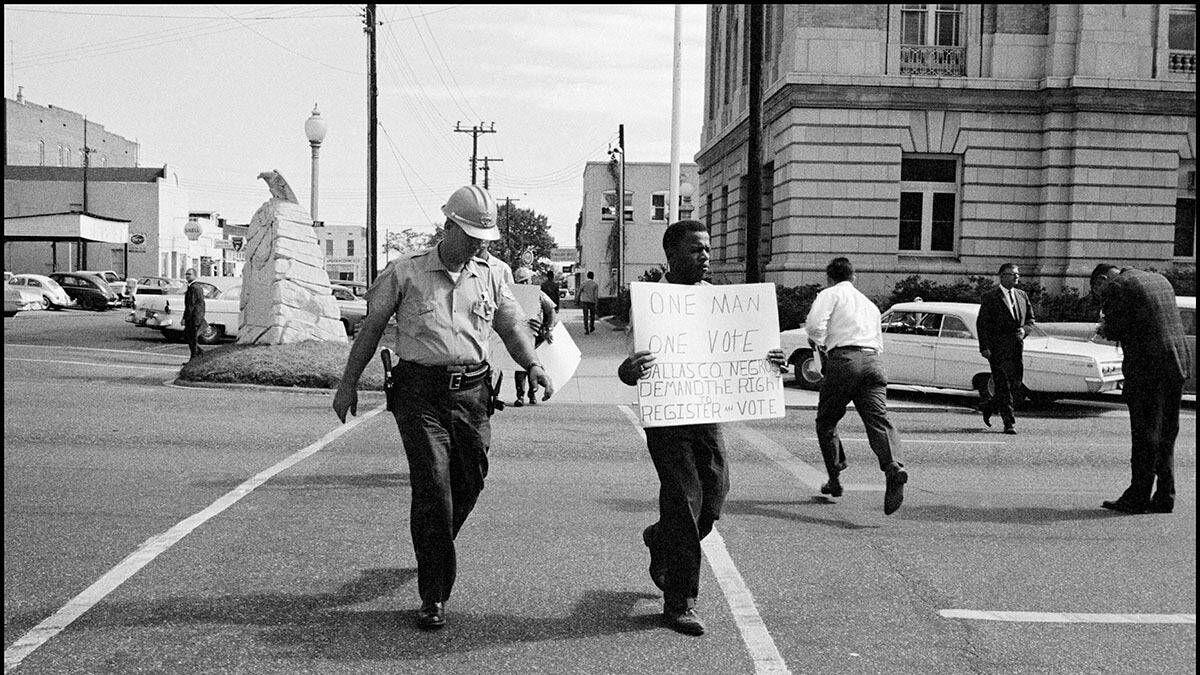By Robert Ham
John Lewis, the 17-term congressman representing Georgia's 5th District, needs no introduction. The 80-year-old has made his mark on American history on the front lines of the civil rights movement in the '60s. Lewis was one of the original Freedom Riders, worked to register voters in the South, and helped organize the famous March on Washington. And in recent years, he's been a tireless advocate for causes like gun control and the creation of the National Museum of African American History and Culture. With all those accomplishments, it's astonishing it took so long for a documentary to be made about his life and work.
John Lewis: Good Trouble finally tells that story. Directed by Dawn Porter, the film is a deeply felt portrait of the congressman. Yes, his many accomplishments—and the faces of the equally important figures he collaborated with—are on display, but what leaves a more lasting mark is Lewis' indefatigable spirit and humility. To discuss the making of this documentary and its timely appearance during the continued Black Lives Matter protests, we spoke with actor and activist Erika Alexander (Living Single, Get Out), one of the producers.
WW: How did you first meet Rep. Lewis?
Erika Alexander: I have been a campaign surrogate for a few candidates, mostly Hillary Clinton. I'm her most-traveled surrogate and have worked with her on different initiatives and her campaigns for 10 years. With her, I met many people who supported her campaign or worked with her, and one was Congressman Lewis. I campaigned with him in Georgia. We were just in awe of him. I called it "our class" on how to be young, gifted and Black in the South in American politics. He was the teacher and it was heaven.
I imagine you were familiar with some of the congressman's history before that.
I was as familiar as maybe most people who know a little bit about political figures, but I had no real sense of the depth and complexity and how long his career has lasted. I knew enough to need to know more.
Is that part of your interest in wanting to get this film into the world—to help people understand more about what Rep. Lewis has been part of?
Absolutely. He's often the supporting player in a Robert Kennedy documentary or a Martin Luther King documentary. But this time the spotlight is on him. Dawn Porter did a really great job of that. People get to learn how he's the "Boy From Troy" and that Dr. King gave him that nickname. There he was, desegregating the diners in the South and participating in the March on Washington.
How strong a hand did you have in the making of Good Trouble?
Dawn is one of the best documentary filmmakers and a natural-born storyteller, so she doesn't need me to do that work. I facilitated the access to the congressman and to most of the figures you see talking, whether it was President Clinton or [Massachusetts Rep.] Ayanna Pressley or [former Georgia House Minority Leader] Stacey Abrams.
Were there aspects about Rep. Lewis' life and work that you learned for the first time during production?
Definitely how long he had determined to be committed to social justice. I have to go back to the fact that, at 17, he wrote a letter to Dr. King, and he found a way into the struggle by joining the Freedom Riders. We see the Edmund Pettus Bridge action all the time, but we don't know how he got there. The icon status he has he came by the hard way—by truly committing his life to fight for civil rights and justice for all.
This documentary arrives at an almost perfect time with the continued protests against police brutality. Do you see the connections between what Rep. Lewis was fighting for during the '60s and what is happening now?
There's no doubt that we're living in unprecedented times. A documentary talking about how long this man has worked inside of these issues is instructive. Democracy is a moving target. It has to be nurtured. People have to really sacrifice and commit to looking at themselves and their own practices. If we reconstitute ourselves to what we were before, then we deserve what we get.
SEE IT: John Lewis: Good Trouble streams on Amazon Prime, Google Play and YouTube.
